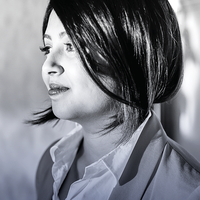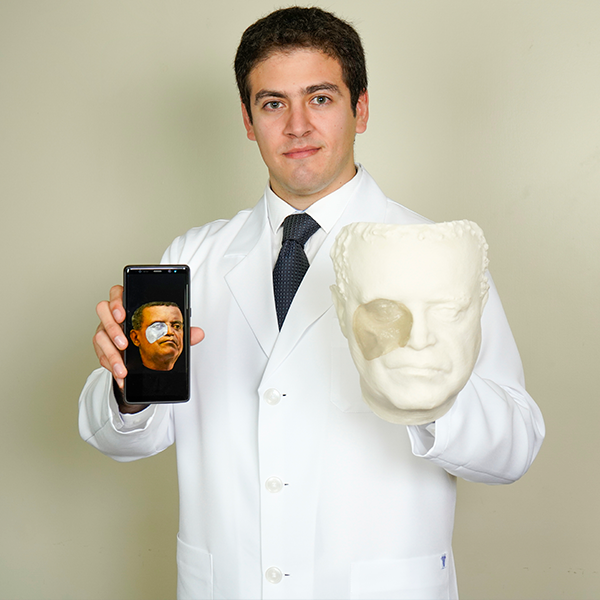Often, people who survive maxillofacial cancer face a severe consequence: their face has been completely deformed by the tumor removal surgery. Some can lose vital parts that prevent them from doing basic things such as feeding, speaking, and smelling. But the face is also one’s identity, the way for other people to recognize us and to see ourselves. One possible solution is maxillofacial prostheses, but not everyone has access to them.
As a dental surgeon specializing in this type of prostheses, Rodrigo Salazar decided to create a new and easier method of manufacturing to make them cheaper and help more people. For this reason, Salazar has been chosen among the winners of the Innovators Under 35 Latin America 2018 from MIT Technology Review in Spanish.
"Between losing your life and having surgery, there is no choice, but after the operation, there are some consequences to face. The problem is that rehabilitation of this type of surgery is one of the most destitute services in the world and this lack of coverage affects the patient," states Salazar. His strategy not only cheapens the final price of the prosthesis but by facilitating the process, it becomes democratized, which could increase the number of prosthesis producers making it easier to help people in need.
To this day, the design of a prosthesis is an almost artistic process, with a large component of manual work and the need to use equipment that is excessively expensive and hard to manipulate. The technique requires head scanners, specialized cameras, and 3D modeling programs, among other things. "It may be necessary to invest up to half a million dollars to produce a prosthesis," Salazar says. However, his method only needs the smartphone camera, open source software, and 3D printers to "reduce the cost so that new doctors could begin producing this type of prosthesis," he adds.
Salazar developed this new methodology, called "+ ID" while doing his master's degree thanks to funds from the Paulista University of São Paulo (Brazil). Now he works with the Mais Identidade Foundation to promote its use in both Brazil and Peru, but the technique has also reached other countries in the region. "Between 40 and 50 patients have already been rehabilitated by the direct or indirect initiative through the training processes of professionals," he explains.
The researcher of the Laboratory of Biomechanics and Applied Robotics of the Pontifical Catholic University of Peru, Dante Elías, jury member of Innovators Under 35 Latin America 2018, considers this "an excellent example of how the appropriate use of technology can transform people’s lives."




